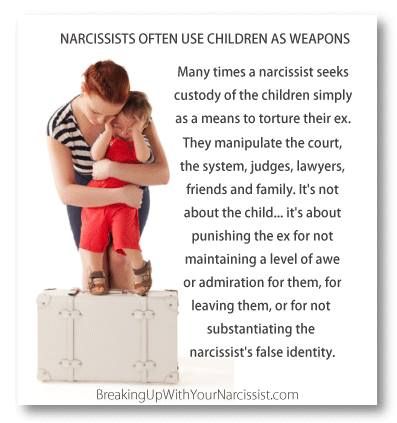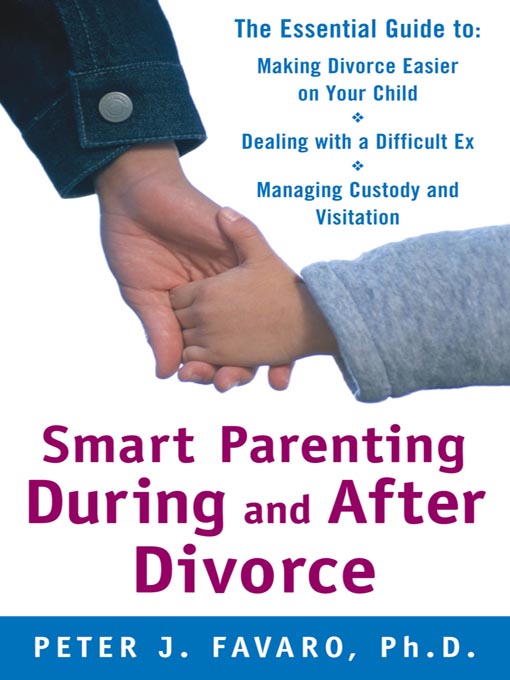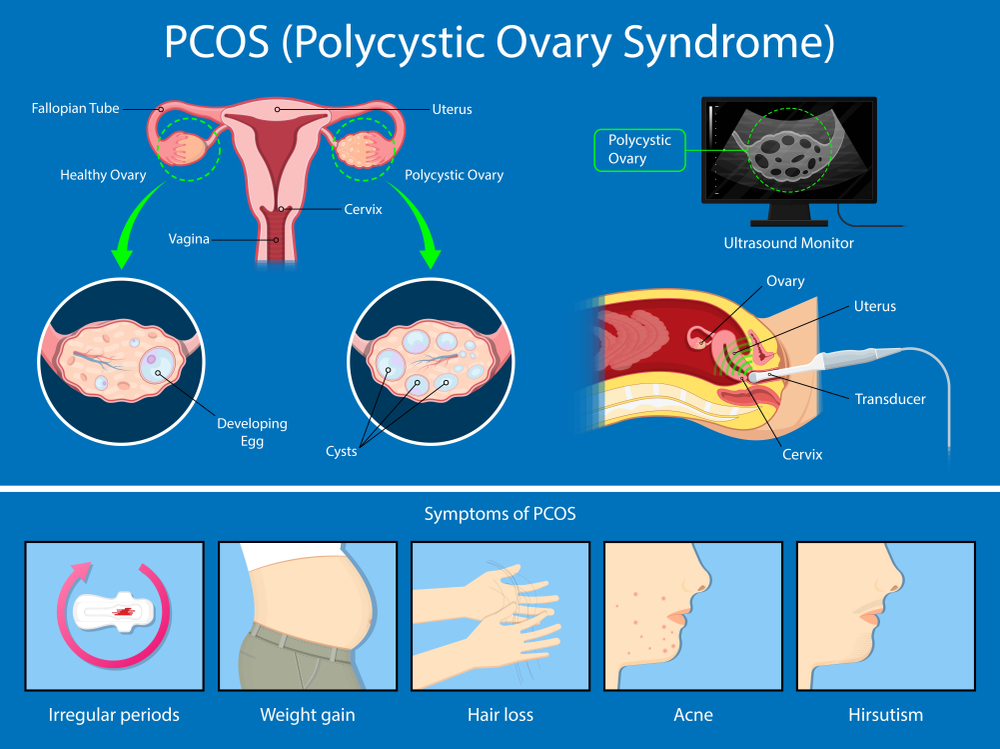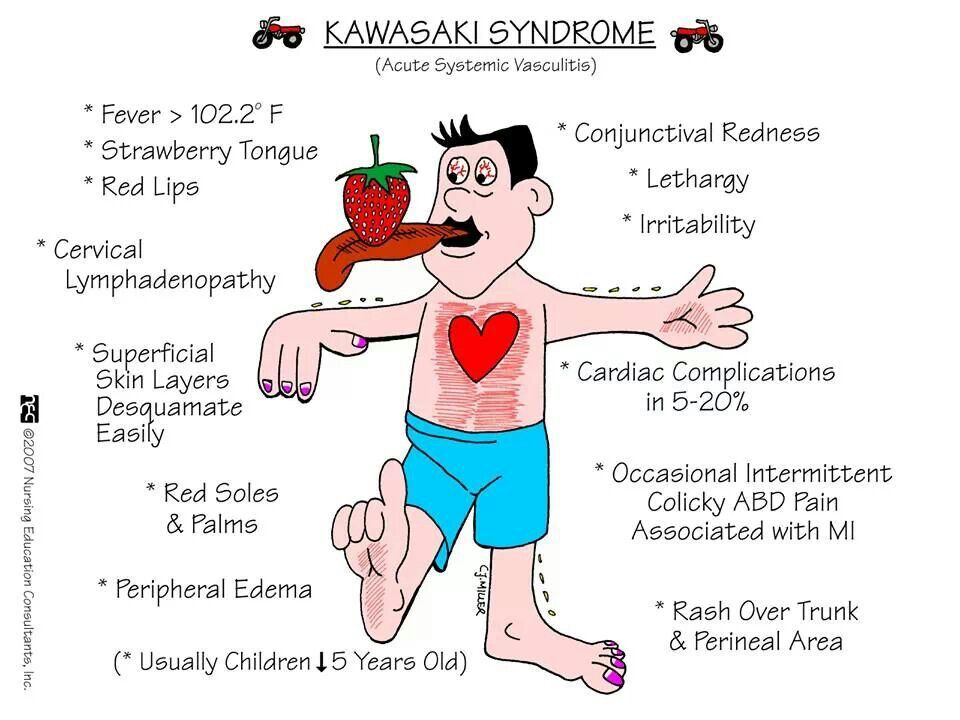How to give someone temporary custody of your child
Giving Someone Temporary Legal Power to Make Decisions for Your Child
Sometimes you may need to leave your child with a non-parent. If you are going on a trip or will be difficult to reach for any reason, it is important to give your child’s caregiver temporary legal power to make decisions for your child. To do this, you can prepare a Delegation of Parental Authority.
When Should I Consider Using a Delegation of Parental Authority?
As a parent, you have the legal power to do the following things for your child:
-
Decide where and when your child goes to the doctor
-
Consent to medical treatment for your child
-
Decide where your child will go to school
Anyone who is not your child’s parent cannot do these things unless there is a valid legal document or court order giving these powers to them.
When a parent leaves their child in someone else’s care, it is often a good idea to transfer their parental powers to the child’s caregiver on a short-term basis. This is especially important for decisions involving medical care. As a parent, you can use a legal document called a Delegation of Parental Authority (DPA) to give another person temporary power to make decisions for your child when you are away. You must have legal custody (sole or joint) to use a DPA.
If you leave your child with someone who is not their parent and do not sign a DPA, that person may be able to go to court to get guardianship over your child. This becomes more likely the longer you are away from your child. You are in control over the terms of a DPA, and you do not need to go to court to end or change it. Guardianships always involve going to court. Once a guardianship is in place, ending or changing it will mean going to court and getting a judge to agree. Creating a DPA allows you choose the person who will care for your child, and lowers the chance that someone can get a guardianship over your child without your permission. To learn more about the difference between DPAs and guardianship, read the “Should I Consider Guardianship for My Child?” section at the end of this article.
When you are away, a DPA gives your child’s caregiver the legal power to make decisions for your child that normally would be made only by you or your child’s other parent. The DPA only gives the caregiver this power while you are gone. In other words, even if there is a DPA, if you are present to make decisions for your child, the caregiver does not have the right to interfere.
A DPA is often used when parents go on a trip without their children or when a parent is deployed in the armed forces. You may also want to consider preparing a DPA when you are leaving your child in a non-parent’s care under any of these circumstances:
-
You know you will be hard to reach while you are gone
-
Your child’s caregiver is taking your child to the doctor or dentist in your absence
-
You want to give your child’s stepparent permission to take your child to the doctor
-
You are concerned that you may be detained by immigration authorities, and want to name someone to care for your child if that happens
-
You are entering drug treatment or going to jail for less than 180 days
The person you give a DPA to is called your agent. An agent is someone whom you give legal power to make decisions that only you could usually make. Your agent could be a relative, friend, or another adult you trust to take care of your child.
An agent is someone whom you give legal power to make decisions that only you could usually make. Your agent could be a relative, friend, or another adult you trust to take care of your child.
What Can a DPA Cover?
With a DPA, the parent decides what parental powers to give the agent. Below are some examples.
Power to Consent to Non-Emergency Medical Treatment
One of the most important powers you can give your agent in a DPA is the ability to consent to medical treatment for your child while you are gone. In a life-threatening medical emergency, a doctor may treat a child without a parent’s consent. However, a child’s parent must consent before a doctor can provide non-emergency medical care, dental care, or surgery for the child.
Giving your agent a valid DPA means that while you are away, your child can have non-emergency treatment without delay. If the agent does not have a DPA, doctors cannot provide care to your child without your consent unless your child’s life is in danger.
Power to Enroll in School and Other Activities
Through a DPA, you can also give your agent power to make decisions about your child’s education and child care. For example, a DPA can give the agent the power to enroll your child in day care or school, camp, tutoring, or other educational activities, and to sign permission slips for field trips. You can also give them the power to access, review, and correct school-related information about your child that would otherwise be protected under privacy laws.
Agent Cannot Consent to Child’s Marriage or Adoption
A DPA cannot give your agent the power to consent to a minor child’s marriage or adoption.
Time Limit
A DPA can stay in effect for up to 180 days. If needed, you can sign another DPA when 180 days have passed.
Parent in the U.S. Military
If you are serving in the United States armed forces and are deployed to a foreign country, the 180 day time limit does not apply. In this case, you can prepare a DPA that is effective until the thirty-first day after your deployment ends.
In this case, you can prepare a DPA that is effective until the thirty-first day after your deployment ends.
How Do I Get a DPA?
You can use the Do-It-Yourself Delegation of Parental Authority tool to prepare your DPA.
Once you have printed your form, sign it. Even though it is optional to sign the form in front of witnesses and a notary, many lawyers view this as the best way to complete a DPA. By getting the document witnessed and notarized, it is more likely that school administrators, hospitals, and others will recognize your DPA as a valid legal document. It also makes the DPA more likely to be accepted in states other than Michigan.
Make a copy of the DPA for your own records, and then give the original to your agent.
A notary can usually be found at a bank or the court clerk's office.
How Do I End a DPA?
A non-military DPA will automatically expire in 180 days. A military DPA will expire on the date listed.
You can also end a DPA by telling your agent that you are ending it. However, it is a good idea to also end the DPA in writing. You can do this by writing a short letter to your agent saying that you are ending the DPA. Include the date that it will end.
However, it is a good idea to also end the DPA in writing. You can do this by writing a short letter to your agent saying that you are ending the DPA. Include the date that it will end.
If you are ending the DPA, notify your child’s school, doctor, and anyone else who needs to know that your agent no longer has power to make decisions for your child.
Should I Consider Guardianship for My Child?
In general, a DPA is the easiest way to give another adult short-term legal power to make important decisions for your child. If your child is in your agent’s care for more than 180 days, you can sign another DPA as soon as the 180 days has passed.
You do not have to go to court to give someone a DPA. However, you must go to court to establish a guardianship. By consenting to a guardianship, you also agree to suspend your parental rights during the term of the guardianship. This is an important difference between a guardianship and a DPA. Your parental rights are not suspended by giving someone a DPA. You keep the power to make decisions for your child even if you have created an agent through a DPA.
You keep the power to make decisions for your child even if you have created an agent through a DPA.
Also, a parent can end a DPA at any time without going to court, but only a judge can end a guardianship. In addition, a guardian may be able to ask a judge for custody or to end your parental rights permanently. If you are considering a guardianship for your child, go to the Minor Guardianship toolkit (coming soon), or talk to a lawyer to make sure this is your best option. Use the Guide to Legal Help to look for a lawyer or legal services in your area.
How to Transfer Child Custody Without a Lawyer
Learn more about transferring custody.
By Melissa Heinig, Attorney
How Do I Transfer Child Custody?
It's not easy to think about, but circumstances may arise when you need to ask someone to care for your children when life gets complicated. Whether you're thinking about giving custodial authority to a family member or custody to the other legal parent, you must follow the law. If you already have a custody order from the courts, the only ways you can transfer custody are to either:
If you already have a custody order from the courts, the only ways you can transfer custody are to either:
- put an agreement in writing with the other parent, or
- ask the court to modify your custody order.
If you're married and separating or divorcing, and you have been the child's primary caregiver, you and the other parent can agree on an informal custody arrangement until your court hearing. If you disagree or are unmarried and do not have a custody order, you may need to request temporary custody orders while waiting for the court to finalize your case.
What Sort of Documentation Do You Need to Transfer Custody?
The first step in transferring custody is to review your current custody order. If you share custody with the child's other parent, you must have permission before you change the custody arrangement.
If the other parent disagrees, you'll need to file a formal request (motion) with the court to change the order. While state law varies, most states require a parent to demonstrate that there's been a change of circumstances that would require a modification to the custody order. You'll also need to convince the court that a transfer of custody would benefit the child's best interest.
You'll also need to convince the court that a transfer of custody would benefit the child's best interest.
Getting a formal agreement
Whether you're transferring custody between legal parents or you're delegating authority to a family member, to do it properly and protect yourself in the future, you'll need to draw up an agreement between you and the parent or guardian. You can do this without a lawyer, but you'll need to present this agreement to the local court for a judge's approval. If you try to skip the court altogether, you put yourself at risk. More often than you'd imagine, the parent giving up custody will have a change of heart after a while and then denies there ever was any agreement.
Ensure the agreement is clear and includes provisions for the child's legal and physical custody, visitation arrangements, and child support. The agreement needs to make the important points in writing and include both parents' and guardians' names and include the child's name and birthdate. Then be sure you all sign the agreement in front of a notary public before you submit it to the court.
Then be sure you all sign the agreement in front of a notary public before you submit it to the court.
Do You Need a Lawyer to Transfer Custody?
Parents who are transferring custody to another biological parent do not need to hire a lawyer to complete the process. If both parents agree to all the terms of the written agreement, the court will generally accept it. However, if either parent disagrees or attempts to transfer care of their child to someone else, the process may be more complex and require a lawyer. Regardless of the circumstances, both parents will benefit from hiring independent attorneys to review any agreements and protect each parent's rights.
Do I Have to Transfer Custody to Family?
Child custody is a serious matter that only parents and the courts can decide. Parents can't allocate custody to a third party without court involvement. However, parents can delegate legal authority to a family member or friend, with the intent that the person will have physical custody and care of the child. Unless the parent or guardian went through the proper legal channels to obtain legal guardianship, the parents could revoke authority at any time.
Unless the parent or guardian went through the proper legal channels to obtain legal guardianship, the parents could revoke authority at any time.
Parents who wish to transfer custody to someone other than the child's other legal parent must go through the court system. The court will evaluate the case and only transfer custody if it's in the child's best interests.
What About Child Support?
In all 50 states, the law requires parents to support their child financially, and every child custody order contains a provision for child support. If you're transferring custody between biological parents, your agreement must include child support guidelines, including which parent will pay and how much. Some states require you to complete and sign a form separate from the custody agreement, which outlines the specific terms for child support.
If you're a parent currently paying support and you've agreed to become the child's primary caregiver, the first step is for you to forward your agreements to the court that handled your divorce or original custody case. In many cases, you can include a letter asking a judge to adopt the new agreement as a court order and request an order from the judge canceling the deductions from your paycheck. A sympathetic judge will give you what you need to take to the payroll office and cancel the child support payments. An unsympathetic judge may tell you that you need to hire a lawyer for the job. But in truth, it is a straightforward procedure, and you should be able to do the necessary paperwork.
In many cases, you can include a letter asking a judge to adopt the new agreement as a court order and request an order from the judge canceling the deductions from your paycheck. A sympathetic judge will give you what you need to take to the payroll office and cancel the child support payments. An unsympathetic judge may tell you that you need to hire a lawyer for the job. But in truth, it is a straightforward procedure, and you should be able to do the necessary paperwork.
The parent accepting custody must continue to pay court-ordered support until the court adopts the new order. Otherwise, the parent can get stuck with paying back child support, even though the parents transferred custody to the paying parent.
Talk to a Lawyer
Need a lawyer? Start here.
How to obtain guardianship or guardianship of an adult
Guardianship is established to protect the rights and interests of citizens recognized by the court as incompetent. People who, due to a mental disorder, cannot understand the meaning of their actions or control them, are recognized as incompetent.
Guardianship is established over people who have been limited by the court in their legal capacity. Citizens who, due to a mental disorder, can understand the meaning of their actions, but in order to manage them, need help. Citizens who, due to addiction to alcohol, drugs or gambling, put their family in a difficult financial situation are also considered to have limited legal capacity.
Depending on the reason for the establishment of guardianship, guardians and trustees are different Rights and obligations of a guardian their actions or direct them. Also, the guardian must protect the rights and interests of the ward in relations with any persons, including in courts, without special authority. The guardian is the representative of his ward and makes all necessary transactions on his behalf and in his interests.
The guardian has the right, in the interests of the ward, to dispose of the funds paid for the maintenance of the incapacitated, that is, alimony, payments, pensions, and so on. The guardian has the right to dispose of income from the management of the property of the ward or his other means only with the consent of the guardianship authorities.
The guardian has the right to dispose of income from the management of the property of the ward or his other means only with the consent of the guardianship authorities.
The guardian is not entitled to sell, exchange, lease or make any other transaction with the movable and immovable property of the ward, except in those cases when such transactions are agreed by the guardianship and guardianship authority.
If the grounds on which the person was declared legally incompetent cease to exist, the guardian is obliged to petition the court to recognize the ward as legally capable and remove guardianship from him.
Rights and obligations of the guardian (mental disorders)
The guardian is obliged to protect the interests of the ward, take care of his maintenance, provide him with care and treatment, must take care of restoring the ability of the ward to understand the meaning of his actions or manage them. Also, the trustee must protect the rights and interests of the ward in relations with any persons, including in courts, without special authority.
The custodian gives consent to the performance of all transactions by his ward with limited legal capacity, except for small household ones. He has the right, in the interests of the ward, to dispose of the funds paid for the maintenance of a person with limited capacity, that is, alimony, payments, pensions, and so on. The trustee has the right to dispose of income from the management of the property of the ward or his other means only with the consent of the guardianship authorities.
The trustee is not entitled to give consent to the sale, exchange, lease or any other transaction with the movable and immovable property of the ward, except in cases where the guardianship and guardianship authority gives consent to such transactions.
If the grounds on which the person was recognized as having limited legal capacity have disappeared, the guardian is obliged to petition the court to recognize the ward as capable and remove guardianship from him.
Rights and obligations of the guardian (addiction to alcohol, narcotic drugs, gambling)
The guardian consents to the performance of all transactions by his ward with limited legal capacity, except for small household ones.
The trustee has the right, in the interests of the ward, to dispose of the funds paid for the maintenance of a person with limited capacity, that is, alimony, payments, pensions, and so on. The trustee has the right to dispose of income from the management of the property of the ward or his other means only with the consent of the guardianship authorities.
The trustee is not entitled to give consent to the sale, exchange, lease or any other transaction with the movable and immovable property of the ward, except in cases where the guardianship and guardianship authority gives consent to such transactions.
If the grounds by virtue of which the person was recognized as having limited legal capacity have disappeared, the guardian is obliged to petition the court to recognize the ward as capable and remove guardianship from him.
"> rights and obligations.
When is it necessary to obtain temporary custody of a child by a grandmother?
It is not uncommon for parents to have great difficulties in life. They get sick, or end up in places of deprivation of liberty, or are forced to leave for a long time on a business trip, and it is not possible to take their children with them.
They get sick, or end up in places of deprivation of liberty, or are forced to leave for a long time on a business trip, and it is not possible to take their children with them.
What to do in such a situation? How to protect children from placement in state institutions like a boarding school or an orphanage? If the child has a grandmother, then it is legally possible to entrust the upbringing of a minor to her.
Contents
- What is temporary guardianship of minors?
- How can I get custody of my grandson?
- Required documents for registration of guardianship
- How to fill out an application?
- How is guardianship of a grandchild established with living parents deprived of parental rights?
- Registration of guardianship without deprivation of parental rights
- Period of temporary guardianship
What is temporary guardianship of minors?
There is no concept of “temporary guardianship” in the Russian IC, however, there is Article 12 of the Federal Law of the Russian Federation No. 48, which describes the rules and regulations for actions in situations in which a guardian provides temporary care for a child. The same article clearly regulates the capabilities of guardianship and guardianship authorities and the responsibility of each of the parties involved in the process.
48, which describes the rules and regulations for actions in situations in which a guardian provides temporary care for a child. The same article clearly regulates the capabilities of guardianship and guardianship authorities and the responsibility of each of the parties involved in the process.
If parents have circumstances that make them unable to take part in the upbringing of their children, the law gives them the opportunity to enlist the help of guardianship and guardianship authorities and insist that the minor's grandmother become the guardian.
From the point of view of the law, it does not matter at all whether the parents are forced or voluntary. In both cases, they have the right to use this opportunity.
How can I get custody of my grandson?
To obtain custody of the child's grandmother, prepare to provide strong evidence that you yourself have to be absent for some time, and therefore cannot care for the child:
- if the situation arose due to temporary disability, then collect medical documents confirming this;
- if you are forced to leave for another city due to full-time education, then request supporting documents from the institution where you will study;
- if there are other circumstances, also collect all documents that can confirm the need for your absence.

Please note that the grandmother cannot start the procedure on her own initiative. Consideration of the situation by the guardianship and guardianship authorities is impossible without the appeal of the parents themselves.
What exactly will the guardianship authorities be interested in in the personality of the future guardian:
- level of health;
- psychological characteristics;
- lifestyle;
- moral character.
Careful attention to the personality of the guardian is connected not only with how well he will be able to fulfill the duties assigned to him, but also with whether there are any restrictions imposed on him by Russian law.
Article 146 of the RF IC contains a list of circumstances that will not allow you to become a guardian, even temporarily. For example, it mentions a situation where the grandmother herself was once deprived of the right to be a parent. From the point of view of the law, this grandmother is no longer related to her grandchildren and has no right to become a guardian.
Required documents for registration of guardianship
In order not to delay the process, collect the full package of documents at once:
- write an application to the guardianship authorities;
- attach the passport of the potential guardian;
- prepare a medical examination of her health;
- write her autobiography;
- find documents on the ownership of an apartment or house;
- order in advance a certificate stating that she had no previous convictions;
- attach the birth certificate of the grandson;
- ask the child, if older than 10 years, to sign the consent;
- get a health certificate for your grandson at the clinic;
- enlist the support and consent of people who also approve of the grandmother's candidacy for the role of temporary guardian;
- ask representatives of the guardianship and guardianship authorities to draw up an act of visiting the housing where the grandmother lives and where the minor will live;
- if the child remains to live in his own territory, then get ready for the fact that this housing will also need to be examined.

How to fill out an application?
An application from a grandmother to the guardianship and guardianship authorities must be drawn up as follows:
-
- in the header of the application at the top right, indicate the full name of the PLO, in which all documents will go, the full name of the grandmother, address of residence and passport data;
- further on behalf of the grandmother it should be written that she asks to consider her candidacy as a guardian of her grandson;
- the full name of the child, place of birth, residence, and date of birth must be indicated;
- then it should be written that all data on housing and material conditions have been collected, and the state of health of the guardian has been investigated;
- an important point is the information that the grandmother has no criminal record and that she was not deprived of parental rights;
- then you need to specify the place of work and schedule;
- if there is a pension, the presence of benefits, if any;
- describe the accommodation where the minor will stay and the presence of other relatives in the premises;
- give information about education and experience with children;
- describe the relationship that exists between a grandson and a grandmother;
- the document must also contain the consent of family members who live with the grandmother that they do not mind accepting the baby to their living space;
- the list of attached documents is indicated last;
- at the end of the application, you must put the date of writing the application and your signature.

Do not forget a very important point - the application must indicate the period during which the grandmother's custody of the minor will be needed.
Download an application for temporary guardianship.
How is guardianship of a grandchild obtained with living parents deprived of parental rights?
In a situation where the parents of a minor are alive but deprived of parental rights, the care of a grandmother is the most humane option. If only the mother is deprived of rights, then the father will be the first relative to be offered custody.
In which cases will the law prefer a grandmother as a guardian to a father:
- If the father does not consider the child his;
- If paternity is not established by the court;
- If the father is incapacitated;
However, keep in mind that it will not be possible to get custody of the grandmother if the mother has not been deprived of parental rights. And even if she leads an asocial lifestyle, this will not be the basis for transferring custody of the child to the grandmother. Therefore, if you want to arrange custody of a child as a grandmother, then first make sure that the mother is deprived of parental rights.
And even if she leads an asocial lifestyle, this will not be the basis for transferring custody of the child to the grandmother. Therefore, if you want to arrange custody of a child as a grandmother, then first make sure that the mother is deprived of parental rights.
Registration of guardianship without deprivation of parental rights
There are situations when mom and dad are forced to go abroad without a child or on a very long business trip, or due to some other serious circumstances they cannot perform parental duties for some time.
In this case, the law gives them the opportunity to apply to the guardianship and guardianship authorities, explain the situation and confirm their words with relevant documents.
Also recently quite often there are situations when minors themselves become young parents. In this case, the grandmother is also allowed to take over the duties of the child's guardian until the young mother and father reach the age of majority.
After the guardianship authorities thoroughly study all the circumstances of the situation that has arisen, examine the identity of the mother and father, as well as the grandmother, a positive or negative decision can be made.
Keep in mind that the decision is not made immediately. The statutory period for studying all the details of the case and making a decision is 7 days.
- Grant
When a grandmother becomes temporary guardian of her grandchild, she has all the legal rights to receive payments and child benefits that his parents previously received.
The amount of these payments also corresponds to the amounts that were assigned earlier. The mechanism for assigning payments and benefits to temporary guardians is described in detail in paragraph 4 of Article 12 of the Federal Law No. 48. . The only exceptions are situations where the child is disabled.
But this does not mean that the guardian grandmother is completely deprived of any material support from the state. By law, if such a grandmother works and the child falls ill, then she has the right to receive state sick leave payments when she is forced to interrupt her work and take care of the sick baby.
By law, if such a grandmother works and the child falls ill, then she has the right to receive state sick leave payments when she is forced to interrupt her work and take care of the sick baby.
In general, the state is pursuing such a line, according to which the parents of the child themselves must provide for the child whom they left in the care of the grandmother. In this regard, no additional costs are provided by the state.
In each such story, the guardianship and guardianship authorities thoroughly understand and pay great attention to the new conditions in which the minor will find himself, whether the new circumstances of life will adversely affect him, and how much his material well-being will change.
Duration of temporary guardianship
When the guardianship authorities indicate the period for which temporary guardianship is issued, this period usually completely coincides with that specified by the parents in their application.
In other cases, the term of temporary guardianship can be determined from two to eight months, and, if necessary, extended as many times as necessary until the parents return to fulfill their parental duty.












